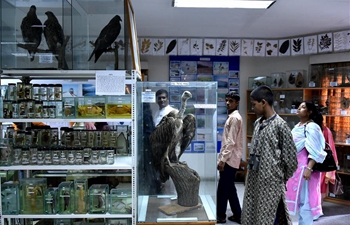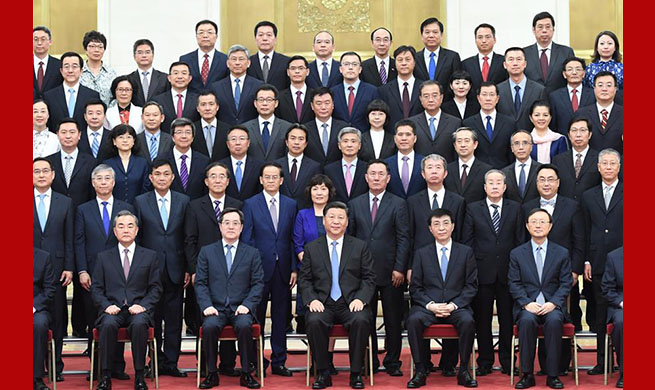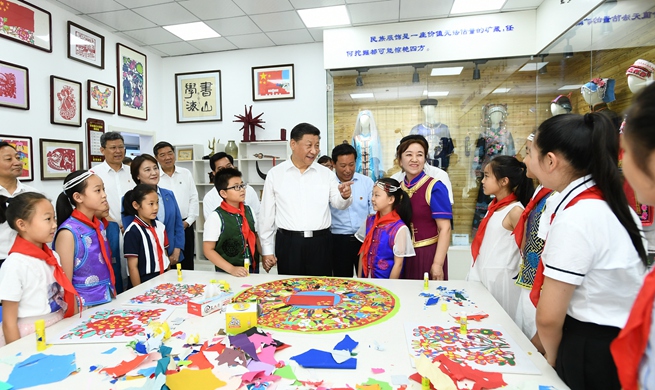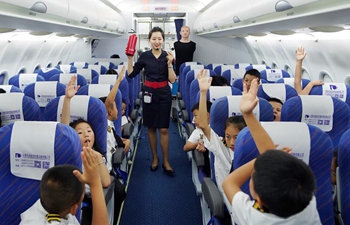KUALA LUMPUR, July 19 (Xinhua) -- Malaysia's trade is set to ride on the wave of positive trade growth between the Association of Southeast Asian Nations (ASEAN) and China, according to government officials and experts.
The 10-nation ASEAN overtook the United States to become China's second largest trading partner in the first half of the year, according to China's official statistics.
For Ong Kian Ming, Malaysia's deputy minister for international trade and industry, the fact that ASEAN countries have surpassed the United States to become the second largest trading partner of China "is not surprising."
The reasons he listed include the fact that China and ASEAN's economies are growing faster than the United States, which would see a larger percent increase in exports and imports among them, the increasing supply chain integration between companies operating in China and Southeast Asia, as well as the effects of trade and production diversion due to the trade tensions.
Professor Azmi Hassan from University of Technology Malaysia sees the China-proposed Belt and Road Initiative (BRI) as the main catalyst of the increased trade between ASEAN countries and China.
For him, the open policy by the Chinese government has led countries like Malaysia to conclude that the China is a more reliable trade partner. The trade data demonstrate that ASEAN countries are "buying up or taking the opportunity" provided by China that is more open to the world, he said.
According to the latest statistics by China, bilateral trade between China and Malaysia grew 10.7 percent to 57.35 billion U.S. dollars in the first six months of 2019. China's export to Malaysia increased 12.7 percent to 24.35 billion U.S. dollars while China's import from Malaysia rose by 9.3 percent to 33 billion U.S. dollars.
Based on the Malaysian statistics, Ong said Malaysia is "cautiously optimistic that total trade with China will grow at a higher percentage than the overall percentage trade growth for Malaysia."
"We welcome the initiative of the Chinese government to increase China's imports from around the globe including from ASEAN countries which includes Malaysia. We will continue to work with China on policies to increase Malaysian exports to China, including palm oil, petrochemical products, manufactured goods and agricultural products," the deputy minister told Xinhua, adding that Malaysia will be participating in the Second China International Import Expo (CIIE) in Shanghai in November.
"With more investments coming from China to Malaysia and more Malaysian companies doing business with China and in China, I am confident that the total trade flows will continue to increase," he said.
China and ASEAN countries is also working toward the early conclusion of Regional Comprehensive Economic Partnership (RCEP), which is expected to boost trade and economic integration among ASEAN members and its six trading partners, namely China, Japan, South Korea, Australia, New Zealand and India.
"We hope that a substantive conclusion to the RCEP agreement by the end of 2019 will quicken the process of supply chain integration among the participating countries including China and ASEAN. This will most certainly lead to an increase in China-ASEAN trade and investment," said Ong.
Oh Ei Sun, principal advisor of Malaysia's Pacific Research Center, suggested that some sort of coordination mechanism should be set up between the BRI and the ASEAN Economic Community, with an eye toward eventually broadening and deepening the China-ASEAN Free Trade Area into possibly a China-ASEAN Economic Community.
"Such a free-trade framework can be a good role model for RCEP, with those willing negotiating parties moving ahead first," he said.













